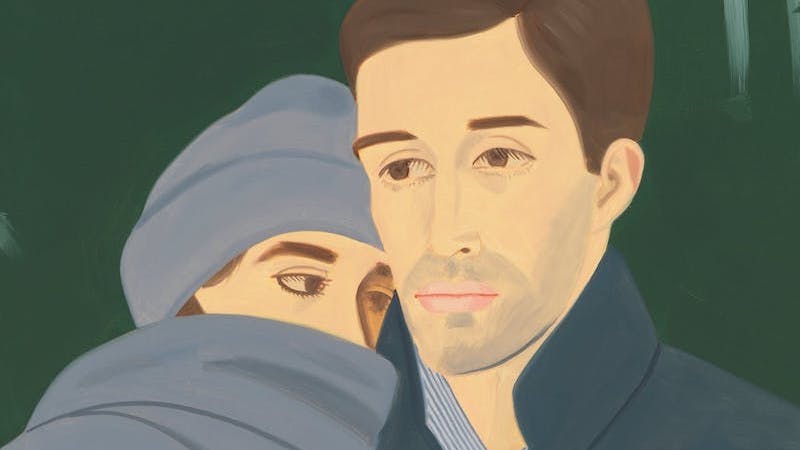
Our smorgasbord of sumptuous reviews this week includes Patricia Lockwood on Blake Butler’s Molly, Elizabeth Gonzalez James on Álvaro Enrigue’s You Dreamed of Empires, MJ Franklin on Claire Oshetsky’s Poor Deer, Sigrid Nunez on Cynthia Zarin’s Inverno, and Ron Charles on Hisham Matar’s My Friends.
“The reading was like falling, into a level that hovered just below my bed. A horizontal experience. Into the secret life that was Molly’s. I was supposed to be writing something about the book, but everything sounded mad: a document you might find in someone’s papers after their death. I only am escaped alone to tell thee. The book begins at the end of language, someone at a bombsite or in a burned-out church, the words and phrases jarred out of their places, as if they too had heard the gunshot and started running; as if the ripples of the act, the derangement in the air, had entered into English itself. Or Blake’s breath, running to find her in the field, past the grown-together pair of trees Molly said might be them in their old age. That is the way that it is. Why should words be available when he has for so long stored them in her? … Molly, more than anyone else, understood there would be a book called Molly; what did she want that book to contain? … It does not seem we should be able to see Molly there in her field, but these things happen out in the world. He is telling us that. His wish: that we should look upon her face, see even the fly. Hear what he hears in the firework, now. Go into Dante’s dark wood, and experience language as useless, in him.”
–Patricia Lockwood on Blake Butler’s Molly (London Review of Books)
“Enrigue spins a seductive tale despite the fact that everyone already knows how, in reality, it ends—spoiler alert: Spain won. And yet, immersed in the world Enrigue builds, we read beyond the shadow of this ending hoping that just maybe, this time around, the story will be different. In his hallucinatory prose, anything could happen … It is tricky to write against a backdrop as well known as the Spanish conquest of the New World, though it is precisely this limitation that allows Enrigue to take his biggest risks … And once we have allowed time and history to collapse in on itself in this instance, the centuries folding over and sitting atop one another like one city built on the ruins of another, we allow what Enrigue does later on, which is to introduce a Calvinoesque tipping of his hand into the narrative … The ending of You Dreamed of Empires, the aftermath of that fateful meeting, is both expected and surprising, the author having a bit of cake and eating it too. It has been pitched as a colonial revenge story, restitutive, and revolutionary. But these descriptors shift focus toward what happens and away from what I believe is the novel’s greatest strength: its comfort in the murky could-have-been. I find little solace in revenge and restoration—what would that even look like 500 years on? What Enrigue does in this novel is better than revenge—it is an attempt to understand. Why did Moctezuma let Cortés in? Why didn’t he kill him where he stood? Would it have made any difference if he had? All we can do now is recognize, imagine, wonder, fight, and stand until it is our own turn to fall. We don’t last. And yet, in that span, we may dream multitudes.”
–Elizabeth Gonzalez James on Álvaro Enrigue’s You Dreamed of Empires (Los Angeles Review of Books)

“Midway through Claire Oshetsky’s beautiful, terrifying sophomore novel, a mother asks her daughter: ‘Did you leave Agnes Bickford in that cooler to die, Bunny?’ This turns out to be the central question of Poor Deer … This setup frames Poor Deer like a thriller, but the novel is less a mystery about what happened on that fateful day, and more a psychological deep dive into how Margaret, and all those who orbited the girls, grapple with the tragedy … Grief is a well-trod territory in fiction, but in Oshetsky’s hands, this familiar topic becomes fresh and strange. The book’s narrative structure mirrors the grief-stricken mind—starting, stopping, looping back, stuttering, marching grimly forward … With Poor Deer, Oshetsky proves themself the bard of unruly psyches. They show how loss warps our realities, and how that distortion can be both a coping mechanism and a destructive force.”
–MJ Franklin on Claire Oshetsky’s Poor Deer (The New York Times Book Review)
“I would in fact recommend this book to any reader for whom a chief pleasure to be found in literature is beautiful sentences. The elegance and incantatory power of Zarin’s prose, along with her virtuosity at observation, are undeniable, but, like many original works, Inverno resists easy description. Central to the novel is a love story, one that, like most love stories, is at once simple and terribly complicated … The narrator has a riveting, lyrical voice and a deliberately digressive but expertly controlled style … Love and time. Each is commonly said to have the power to heal, but Inverno is all about that other power they share: to annihilate. As the narrator finds herself ‘running behind something or someone that is leaving forever,’ the reader finds herself slowing down, the better to savor Zarin’s allusive, evocative prose. To see the chaos of suffering shaped into something beautiful is one of the main reasons we turn to art. There is not a banal sentence or purple patch to be found in this book, which only a poet could have written.”
–Sigrid Nunez on Cynthia Zarin’s Inverno (The New York Times Book Review)
“Part historical fiction, part cultural reflection, this is a story about the way exile calcifies the heart into an organ of brittle longing … It’s gratifying to see this thoughtful writer take all the time he needs to wrestle until daybreak with the mysterious angel of his disquieted conscience … Matar writes with cool solemnity in phrases that are often epigraphic but never contrived … Sorrowful as this novel often is, it’s not a Shakespearean tragedy nor an elegy. Matar’s previous books have always felt slender—never slight, no, never that, but compressed, the work of a displaced man aware of the need to pack only what’s essential. With My Friends, it’s gratifying to see this thoughtful writer take all the time he needs to wrestle until daybreak with the mysterious angel of his disquieted conscience … Matar writes with cool solemnity in phrases that are often epigraphic but never contrived. Such is the muted intensity of his tone that it feels entirely natural for a character to say, in full-throated Rumian splendor: ‘Where would humanity be without morning? Even the most violent need is calmed by dawn, and you can almost catch the fresh scent of hope’ … But sorrowful as this novel often is, it’s not a Shakespearean tragedy nor an elegy in the spirit of ‘In Memoriam.’ It’s a profound celebration of the sustaining power of friendship, of the ways we mold ourselves against the indentations of those few people whom fate presses against us.”
–Ron Charles on Hisham Matar’s My Friends (The Washington Post)
If you buy books linked on our site, Lit Hub may earn a commission from Bookshop.org, whose fees support independent bookstores.

